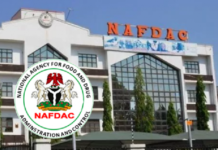The deafening silence over the new date for the implementation of the National Drug Distribution Guidelines (NDDG) is, to say the least, very worrisome. Since the Nigerian government failed, yet again, to keep to the last proposed date for the implementation of the guidelines, which was December 2018, it has decided not to announce a new date for its implementation.
It would be recalled that the NDDG policy was a cumulative effort of all the stakeholders in the health sector and was designed to ensure a well-ordered drug distribution system for the country. Its implementation was to help reduce the increasing incidence of fake, adulterated and substandard medicines, eliminate unregulated drug markets, facilitate oversight functions of government agencies like NAFDAC and PCN, and ensure that all drugs in the system are safe, efficacious, affordable and of good quality.

Formulating the policy became a matter of urgency as the decades of poor control over drug distribution in the country were not just causing severe medication and health problems for Nigerians but were found to be responsible for many social, security and economic challenges for the nation.
The NDDG was eventually launched in February 2013 and considering the promises and prospects that accompanied the concept, stakeholders in the pharmaceutical sector, as well as millions of Nigerians, were hopeful that its implementation would be the ultimate solution to the age-long problem of drug distribution in Nigeria. Unfortunately, since that momentous launch, the concept has continued to face the “Nigerian syndrome” of poor policy implementation. The date for its implementation was first slated for 2014, then shifted to 2016, and again to December 2018, which, like the previous dates, came and went with government giving all sorts of excuses again.
It must be stated that while the refusal of government to commit to a new date to commence the NDDG’s implementation may be a clever way to avoid having another unrealistic implementation date and allow for the completion of required structures, the decision has created a lacuna that is capable of giving the impression that the government is no longer serious with the policy. This must not be allowed. We therefore urge the Nigerian government to promptly announce its unambiguous plan for the NDDG.
We must also emphasise that while it is right for the Federal Government (FG) to make the NDDG a public-private-sector-driven initiative, it must also be aware that as long as medicine is on the exclusive list, the implementation of the policy is the responsibility of the presidency and the FG must arise and deliver on this responsibility.
We call on stakeholders in the health sector and indeed all Nigerians to make it their business to advocate for the implementation of the NDDG to prevent this noble concept from going the way of many brilliant ideas that could have helped this nation progress but died as a result of lack of the needed will to push for their implementation.
The NDDG idea must not be allowed to end up as one of the documents gathering dust on our national shelf. The Nigerian government must be told that delaying the implementation of this scheme is causing the nation more harm than good.
It is noteworthy that this present government has promised to take Nigeria to the next level; and we daresay that the next level to save Nigeria from the problem of chaotic drug distribution and its attendant effects of drug abuse and other social problems fuelled by people having access to drugs where drugs should not be is the prompt implementation of the NDDG.











Like!! Great article post.Really thank you! Really Cool.